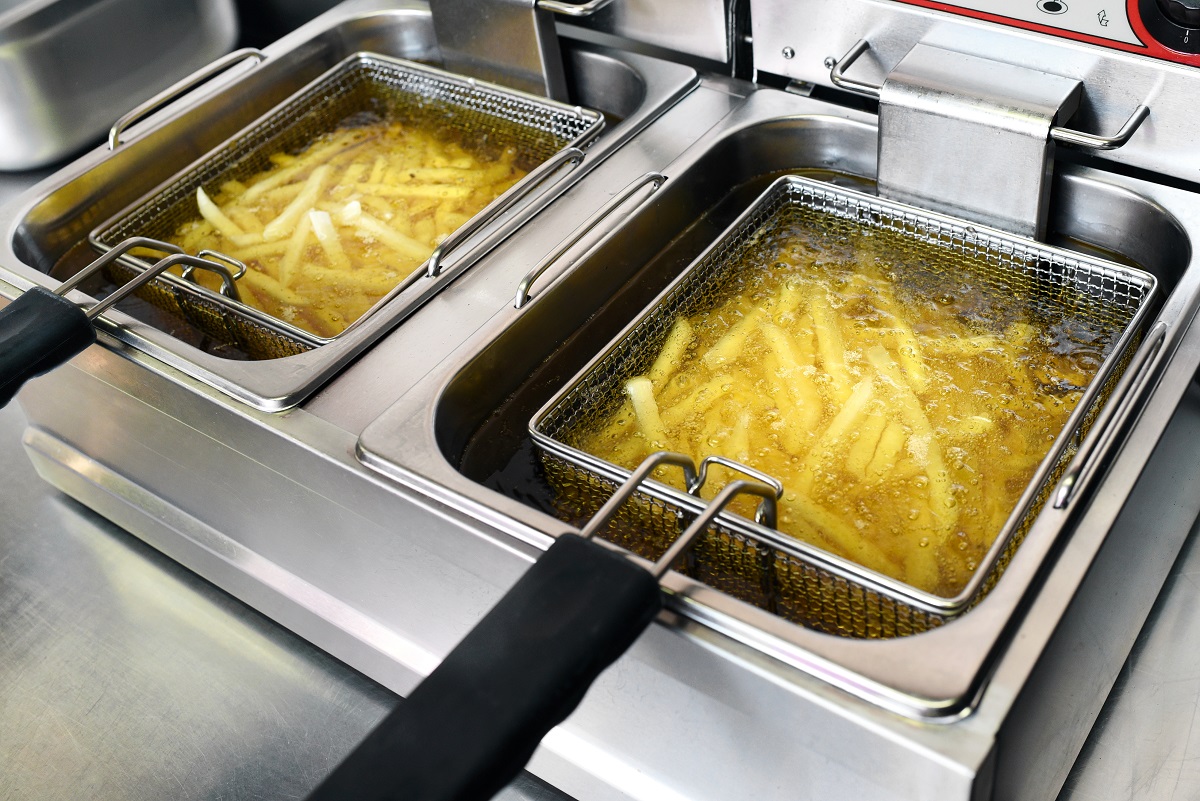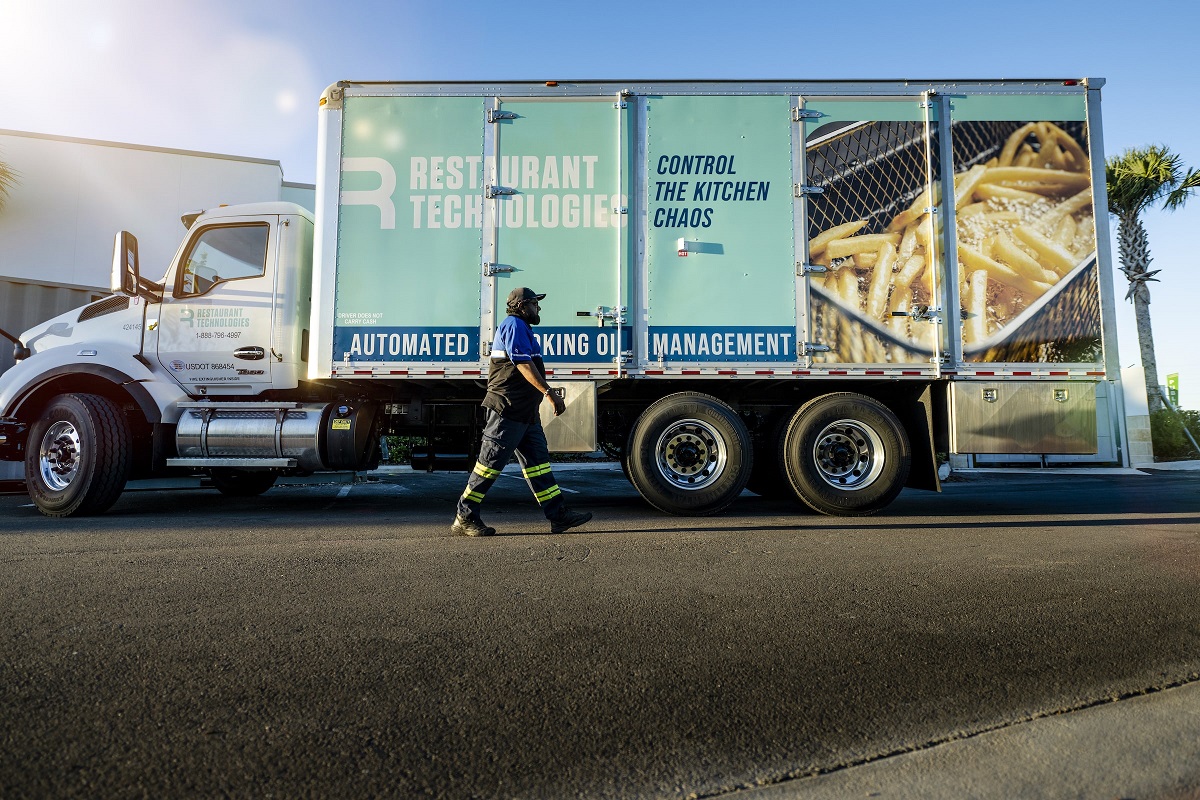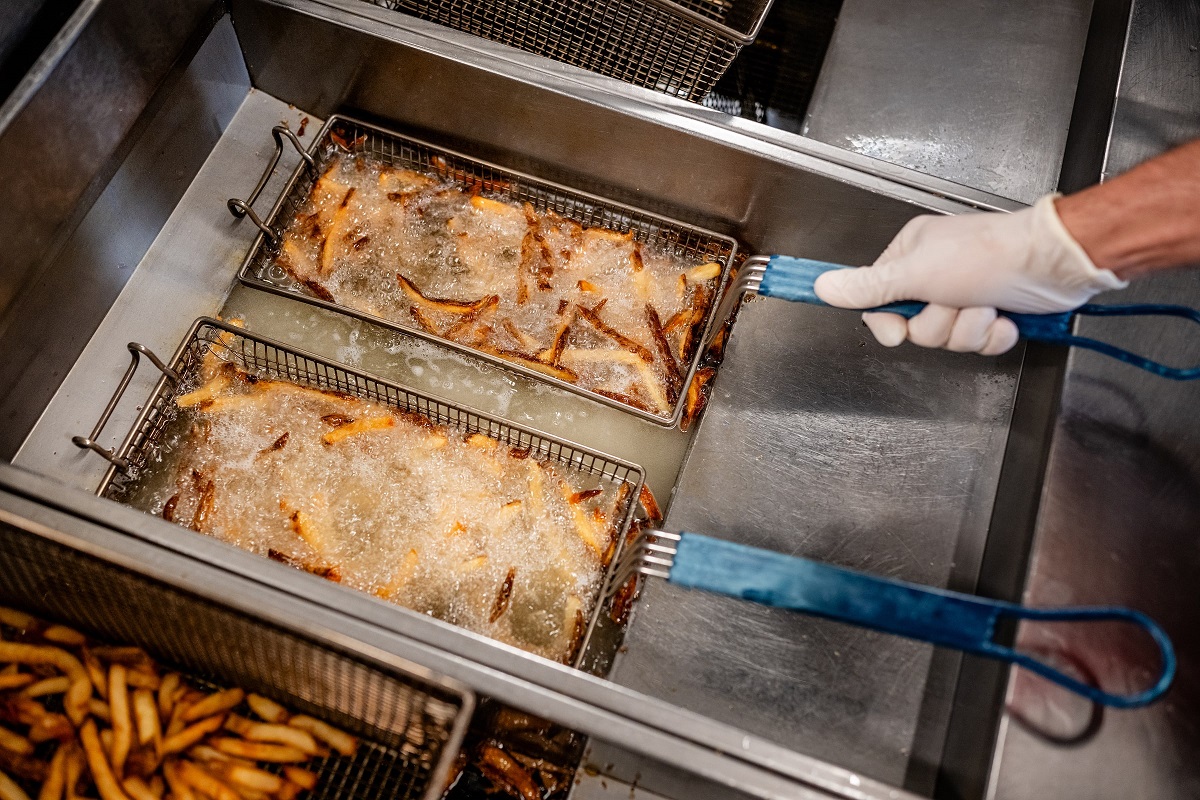This article originally appeared in Restaurant Facility Business – Industry Voices on November 16, 2015. http://www.restaurantfacilitybusiness.com/industry-voices/close-the-loop
Improve restaurant efficiencies with a closed-loop cooking oil management program.
By Bradley J. Schoenbauer
The restaurant industry is challenging and faced-paced, customers are savvier and restaurant operators are faced with increased wage pressures. In short, expectations have never been higher. Operators understand that in order to thrive, they need to create efficiencies across the board, both in the front and back of the house. While it might not be top of mind for everyone, cooking oil can be an expensive ongoing cost for many restaurants, making proper management processes essential. When cooking oil is used and disposed of properly, the return on investment can be dramatic.
An Ongoing Battle: The Grudge Against Grease
Ask many restaurant employees what one of the most dreaded tasks in the restaurant business is, and they’ll likely answer the same: the handling and disposing of used fryer oil. It’s a difficult, disgusting — not to mention dangerous — job. And managers know it can be costly, in more ways than one.
The traditional oil-handling process involves pouring fresh cooking oil from large jugs into fryers, pouring the used cooking oil into another container or grease shuttle, and finally dumping the oil into an unsightly receptacle or rendering tank outside of the restaurant. During this process, the oil is usually still exceedingly hot, and employees may have to travel a long distance to dispose of it, greatly increasing the likelihood of burns or other serious injuries. In addition, oil spillage could lead to a slippery floor, causing kitchen workers to fall and injure themselves or another employee. Finally, disposal bins outside the restaurant often attract any number of unwelcome pests and animals.
The oil-handling process is a potentially costly activity that could lead to additional restaurant waste, inefficiencies and unsanitary conditions; and if an accident were to occur, it could cost a restaurant hundreds of thousands of dollars in workers’ compensation claims.
An efficient closed-loop system takes care of the delivery, storage, handling and disposal of cooking oil so that foodservice managers maximize the quality of their cooking oil through better filtration processes, keep their employees safer, reduce waste and improve sustainability initiatives.
Closed-Loop Oil Management: How It Works
An effective oil management system provides the hardware, software, installation, training and support services to automate oil management. The benefits of oil management mean that the frying oil can better meet the flavor and cost needs of any restaurant.
For example, some systems have two tanks, one for fresh cooking oil and one for used oil. When the fryer oil needs to be filtered, users can simply push a button to filter and extend the life of their cooking oil. When fresh oil available in the tank reaches a certain level, a fill and disposal truck is sent to the restaurant’s location to pump in fresh oil and recycle the used cooking oil. Employees are able to manage all aspects of cooking oil without having to touch a drop. Web-based oil management tools enable restaurant managers and operators to monitor oil usage, filtration, deliveries and many other key indicators via an online dashboard, letting them see when and how often their oil is being filtered.
Restaurant managers can have more control over the process while employees enjoy a much easier, efficient experience. Managers can monitor when employees potentially filter incompletely or — worst-case scenario — not at all. Ultimately, better filtration practices maximize the life of cooking oil, so that restaurants can produce higher-quality fried foods for longer periods of time efficiently and safely.
10 Quick Tips to Maximize the Life of Your Oil and Improve Food Quality
- Filter oil twice a day for 5 minutes per vat.
- Verify temperature with a thermometer.
- Maintain proper thaw times so water doesn’t get into the oil.
- Don’t overload the fryer baskets.
- Avoid seasoning food near the fryer.
- Remove floating debris with a skimmer.
- Make sure the oil remains at the recommended level and add additional oil only when needed.
- Clean the filter with hot water only; do not use soap or a degreaser.
- Be sure to turn off fryers when not in use.
- Keep fryers covered when not in use.
A More Sustainable Path
Consumers and businesses alike understand the importance of doing well by doing good, and restaurants are no exception. Managers are looking for more holistic approaches to improve their sustainability efforts and reduce their environmental footprint while catering to consumer preferences and boosting their bottom line. These efforts extend not only to responsible food sourcing and menu trends but also to the back of the house.
Restaurants that have a high volume of oil usage each month, often as many as 65 to 75 of the 35-pound jibs (jugs in a box), know that this can equate to a lot of storage and, ultimately, dumpster space. Each year, oil management systems eliminate more than 6 million plastic containers and 6 million cardboard containers from landfills, saving 4.8 million cubic feet of landfill space.
A closed-loop oil management system handles the oil disposal and recycling process, often converting a restaurant’s used cooking oil into biodiesel. Because the system eliminates the need for cardboard and plastic packaging containers, it dramatically reduces waste and enables restaurants to meet internal sustainability goals while building their reputation as a more sustainable enterprise.
Moreover, research confirms that many customers are more wiling to pay a premium at companies that commit to a more sustainable practice. A recent study from Nielsen found that 55% of consumers said they would pay more for products from companies committed to positive environmental and social impact.
The Bottom Line
While cooking oil may not account for the bulk of a restaurant’s budget, the mismanagement of oil can be costly. When oil isn’t filtered properly, restaurants may use more oil than necessary, essentially wasting a valuable ingredient. With the use of a closed-loop oil management system, filtration can be closely monitored so the life of the cooking oil can be maximized. With consistent use and standard operating procedures, restaurants can save up to 30% in their oil spend.
In addition, restaurants have the opportunity to earn oil credits when their used cooking oil is converted to biodiesel, helping the oil management system pay for itself over time.
Perhaps what is most valuable is the safety and morale of a restaurant’s most valuable asset: its employees. Closed-looped oil management can make the jobs of employees easier while reducing potentially serious safety hazards.
To keep a restaurant running smoothly, savvy restaurant operators and managers understand the daily act of balancing many plates in the air while running a successful operation. There are owners to report to, new customer demands and preferences to cater to, changing menu trends to research…the list goes on. As they are faced with a multitude of responsibilities, partnering with the provider of a closed-loop oil management system can help ensure that restaurant operators are keeping the back of the house on track and the bottom line in check.
Bradley J. Schoenbauer is vice president, engineering and quality assurance, for RTI. One of the original founders of RTI, Schoenbauer leads the RTI team that is immersed in product design and engineering. He also oversees the RTI fleet of 350+ vehicles.




